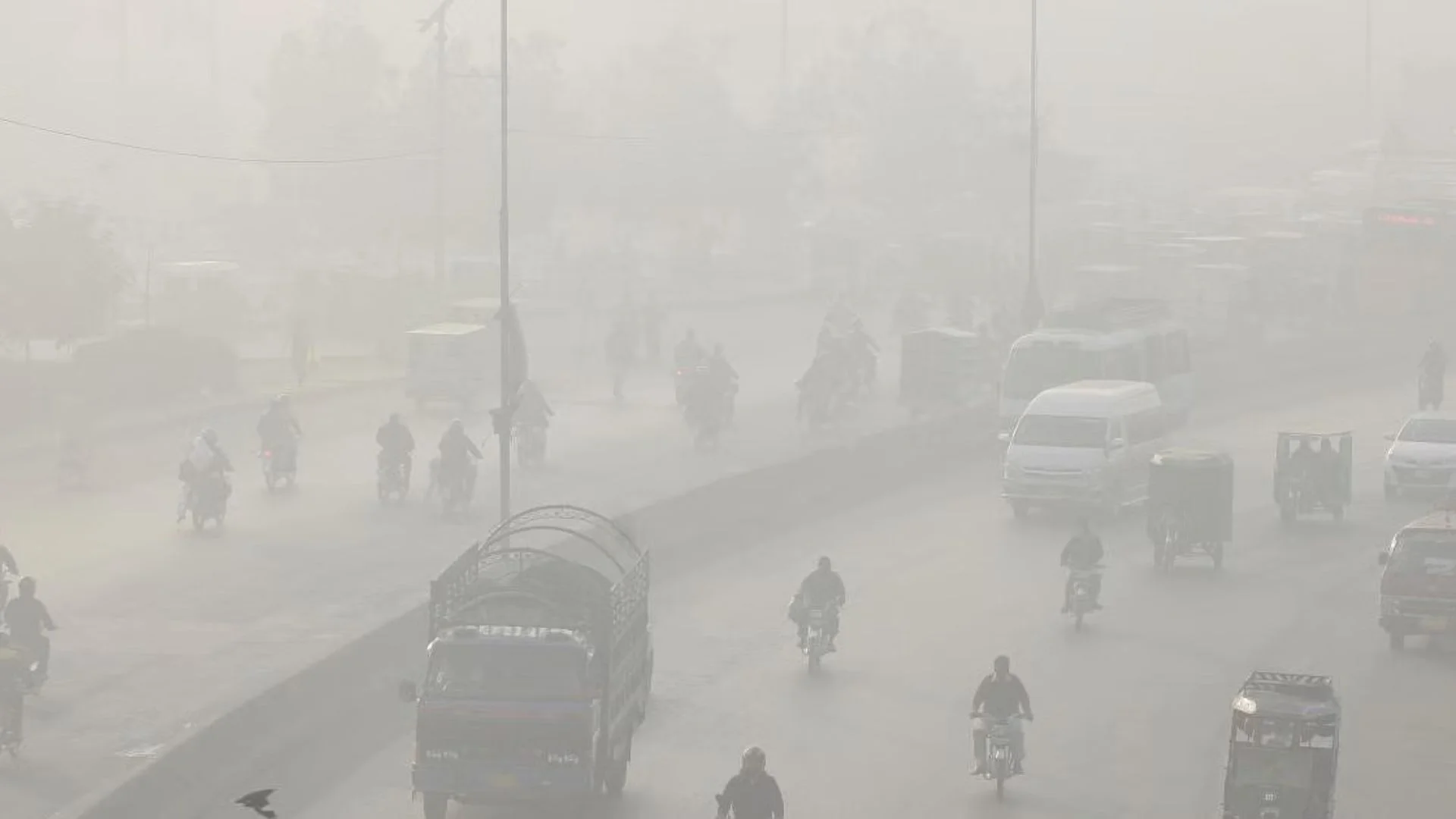Amid escalating air pollution, Lahore authorities ordered all primary schools to close for a week as toxic smog continues to blanket the city. With pollution levels hitting unprecedented highs, Lahore topped the list of the world’s most polluted cities on Sunday, after recording a staggering PM2.5 reading of 1900 near the Pakistan-India border on Saturday. The World Health Organization (WHO) deems any reading above 300 as dangerous, highlighting the severe health threat posed by this pollution surge.
The smog crisis in Lahore, which affects the city’s 14 million residents, is attributed to a mix of low-grade diesel emissions, agricultural fires, and weather patterns that trap pollutants. Provincial authorities confirmed that air quality reached record highs over the weekend, a finding corroborated by Swiss air quality monitoring group IQAir. A PM2.5 level over 300 is classified as “hazardous” by IQAir, indicating grave health risks.
Punjab’s senior minister, Marriyum Aurangzeb, pointed to neighboring India’s pollution practices as a contributing factor, stating, “This cannot be solved without talks with India.” Meanwhile, she urged parents to keep children indoors. Additional health precautions, such as mandatory face masks, have been advised for older students still attending school. The government is also collaborating with the Environmental Protection Department to monitor the crisis closely and implement countermeasures.
Lahore’s worsening air quality reflects similar issues across South Asia, particularly in Delhi, where pollution levels reached the “very poor” category over the weekend. Indian officials noted that while stubble burning in Punjab and Haryana has reduced, air quality remains poor due to other pollutants. In response, Delhi authorities imposed fines on thousands of polluting vehicles and construction sites.
In Lahore, government efforts to reduce emissions include limiting tuk-tuks with two-stroke engines and requiring smoke filters in restaurants with barbecues. Public and private sector offices have also been directed to shift half of their workforce to remote work. Children have faced stringent precautions since last month, with restrictions on outdoor activities and adjusted school hours to avoid peak pollution times.
With PM2.5 particles exceeding safe levels by 40 times, healthcare facilities are under pressure as respiratory cases surge. The University of Chicago’s Energy Policy Institute reports that Lahore’s pollution could reduce residents’ life expectancy by up to 7.5 years, underscoring the long-term impact of this crisis.







